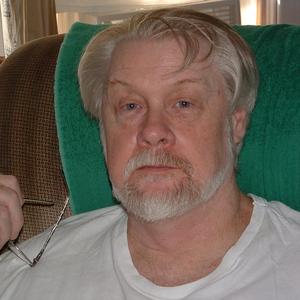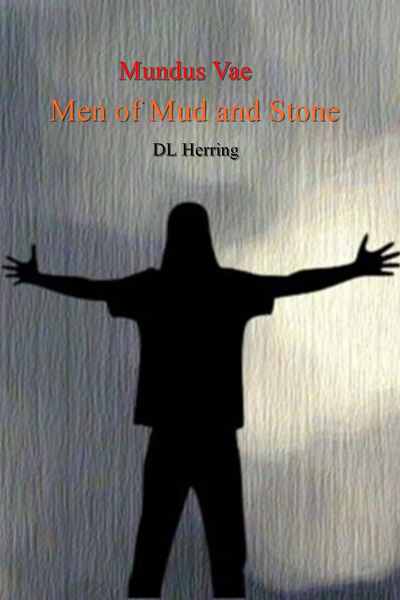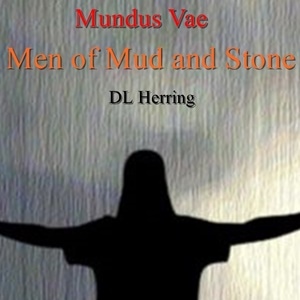I found myself on the Taush with no memory of shifting there. I sat in a corner, hugging my knees and bawling like a child. When I stopped to breathe in, I felt my body trembling, and the most unbearable pain. My thoughts rang with the laughter of a madman. I did that. I killed him with full intent, as I killed Bha Huda and Crish. The memory sickened me.
But, it was not me, it was the monster that killed them, and the monster felt joy. Anyone who feels joy in the death of another is not a man, but a beast most vile. My bawling seared me; the heat of my sorrow burned to my core, and I acquiesced to my tears. Self-recrimination is bitter. Let my trembling undo me, I thought.
I heard voices somewhere beyond my crying. Though distant, they grew louder. Still, I could neither understand nor bear them. I felt hands on me; my head was pulled back, but I withdrew from the light. I gulped air, but there was no calm in my attempt, only a burning faintness. I was on the precipice of a dark place and teetering.
Then, I recognized Khamuel's voice. “Put him in a seat. I'm turning back. Pray to the universe the Taush makes it.”
I understood I was in a seat. The bar was across my lap, and Barachiel fussed over me, wiping my face. My eyes would not open, but my mouth fell open in a pathetic moan.
“He shakes as if diseased,” said Barachiel. “What's that sound?”
Khamuel said, “It's the Taush. Be quiet and let me fly.”
I was drifting, so when Barachiel spoke, I was startled. “Your Majesty. Jeez.” I rolled my head and felt a hand on my face.
I tried and failed to open my eyes. I heard the voice of Khamuel and noted concern. “What's wrong?”
“He stopped breathing for a moment,” said Barachiel.
I stopped breathing? I redoubled the effort to open my eyes but try as I might, I could not master my own flesh.
“Do we have anything in the?” was Khamuel's unfinished question. Barachiel cut him off with a stout reply.
“I've already looked,” said Barachiel. “He's better now. He trembles less.”
“We're getting close,” said Khamuel. “But, I'm losing power. Practically sitting on the trees.”
My head rolled, and dark clouds threatened the periphery of consciousness. I heard and understood the words around me, but I was unmoved, as if heavily drugged. I asked for help but only heard my breath.
“I can take a look behind the panel,” said Barachiel.
“Not much room with my legs in the way,” said Khamuel.
I felt Barachiel leave my side. I heard his voice at a distance, thin and dreamlike. “There's room.”
I knew my consciousness was slipping as the dark clouds billowed in from the edges. I heard metallic noises. I could almost sense the movement of bodies; I wanted to shake off my stupor and open my eyes, but I had already fallen from the precipice. The last voice I heard was Barachiel's. “Kindly move your leg to the right.”
I was jarred awake when my angels dropped me. When I opened my eyes briefly, my eyelids felt rough. There was late light filtering through a cloudless sky. I smelled smoke and heard an abrasive noise dying in fits and starts.
I closed my eyes and heard Khamuel. “Careful.” His tone was worried.
Barachiel replied, “He's heavier than he looks.”
I sensed my angels kneeling on either side of me. One of them had a hand on my chest. I took a breath but could think of nothing to say. Then, the noise ended abruptly.
Khamuel said softly over me, “Hard landing, but at least we made it.”
“For which I am grateful,” said Barachiel. “I can repair the damage in a few turns, but I'll need help lifting the front. I thought that hit would end us for sure.”
Khamuel said, “You can thank the King for that. He took them all out.”
“And I missed the action,” said Barachiel.
“You missed a lot,” said Khamuel. “I saw him standing in the storm. He stood on a bolt of lightning and held a bolt in each of his outstretched hands. The image is burned into my brain. I can close my eyes and see it still.”
Barachiel said, “He must be an absolute wreck.”
I felt the hand leave my chest, and I heard Khamuel say, “Help me get him inside. We'll let him sleep. It hurts me to see him this way.”
I awoke in a back room of the delta home. Early light issued through an open window. I was bundled in several heavy covers on their floor. As I sat up and blinked, my senses returned. I could hear noises outside, so I stood and tested my legs.
I leaned in the frame of the front entrance and got my bearings. The star was not high, but the air was warm and humid. The Taush sat at a distance, its front end hoisted by a crane. My angels were underneath working on a landing arm. The nose of the Taush beneath the viewport was scuffed and dented.
I checked myself in the light and saw my trousers singed, my sandals missing, and the hair on my hands burned away. I walked to a fallen palm near the Taush and seated myself, feeling unduly winded. Barachiel looked up at me with a smile, prodded Khamuel, and nodded my way.
“How do you feel?” asked Khamuel.
“Weak,” I answered, “but happy to be on the ground.”
“That's a good thing,” said Barachiel. “We owe Khamuel praise for his piloting.”
“Agreed,” said I.
I was hungry and thirsty. I wanted to address the matter, but before I could say it, an iron chariot pulled by a black horse emerged from the trees. The chariot was polished, the horse was bedecked in gilding, the driver was sumptuously dressed, and two brown-skinned attendants held the horse as the driver dismounted. The driver was an Axerri with a dog's head.
He hailed my angels as he strode forward with an air of self-importance. “I told you,” said the Axerri, “it will never fly.” He laughed and asked, “Do you listen to Anubi? No. I have looked everywhere. Oh! Who is this?”
Khamuel stepped from beneath the Taush wiping his hands. Barachiel remained seated. As Anubi drew closer, and Khamuel took his hand, I studied the strange clothing on the Axerri. A headpiece of blue and gold fell from his long pointed ears, touching a broad collar of similar weave and color. His knee-length skirt was a bright white and yellow, held in place by a gold belt with an embedded green stone. His sandals were of buffed leather, and he carried a brass staff in his left hand.
Khamuel said to him, “This is Jeez.”
The eyes of the Axerri widened in recognition. “Ah! Ah!” said he. “I was a poor chemist and never met the King.”
I remained seated and said, “King no more. Are you of rank?”
“Anubi? No,” said he. “ Menes Ka has granted me land to the west where I will practice my passion.”
“Embalming?” asked Barachiel. “Ha!”
Anubi responded, turning, “No ha. Ka shows great interest. All of them. Anubi will prepare them for their afterlife, and get rich.” He turned back to Khamuel. “Ka desires a grand tomb. This is why I come.”
“Another favor?” asked Khamuel.
“Big job,” said Anubi. “Leave Sadiki and move stones for Anubi.” He turned back to Barachiel and said, “If you can make it fly.”
“It'll fly,” said Barachiel, seeming offended.
Anubi said, “I have wine and bread.” He turned to his attendants and snapped his fingers. He said to Khamuel, “We will make merry, and speak of great wealth.”
Barachiel said as I followed them inside, “Khamuel's friend, not mine.”
Anubi had a musty smell, and all he would speak of was chemistry and wealth, but I was grateful to have bread and wine. I ate quietly and listened while Khamuel sounded him out. Apparently, the locals had a belief in life after death. Anubi planned to prepare them for that afterlife, and in the process make himself rich. It all seemed absurd, in fact, the only part of Anubi's plan that made sense was the building of a tomb for the local king.
“So, where's this river?” asked Barachiel, smirking. He turned to me with a merry wink.
Khamuel asked rather more seriously, “Do you also pilot the ferry?”
“No. No,” said Anubi. “It is their belief. All we do is bury them. I give them what they want, they give me gold.”
They spent a turn in animated conversation while I sated my hunger with bread and bolstered my strength with wine. It was not a bad offer, but I saw that my friends were not interested. They meant to return with me to the Seed Ship, and that was no mean comfort. By the time Anubi rose to excuse himself, I was feeling warm and relaxed.
Khamuel stood and said, “We'll give it some serious thought. Of that, you may be sure.”
Anubi took Khamuel's hand and said, “Ah! Please.” The Axerri turned to me with a polite nod and excused himself importantly. “Well, so much to do.”
I watched Khamuel walk the Axerri outside. I looked at Barachiel, who slowly shook his head, although a laugh was in his eyes. Barachiel said, “It'll never catch on.”
“He seems confident,” I said.
Barachiel replied, “More gold buys more wine and female slaves.”
Khamuel and Barachiel returned to their labors. Some turns later, they took me up, and all of us were satisfied the Taush was fit. We flew west looking for the land of Anubi. It was a vast stretch of sand, dreary and inhospitable. We flew over the delta with the door up. I saw a growing civilization.
Barachiel laughed and said, “We showed them the benefits of iron, and they traded in their brass hoes.”
I said, “And made weapons of war.”
“True,” said Barachiel.
Khamuel said from the cockpit, “They took our science as magic and gave us trouble for thanks.”
Khamuel flew south and east into rocky hills, where he set the Taush to rest and ran diagnostics. Our open door faced north to a green horizon. I sat in the door, my bare feet in a dry wind. Khamuel sat on my right, and Barachiel sat on my left. Barachiel passed around plump red fruit with taught skin, tart and sweet.
“This is good,” I said.
Barachiel said, “They have names, but they're more of a mouthful than the fruit.”
Khamuel said, “Bar calls them red fruit, purple fruit, dark fruit.”
I laughed, but inside, I was still sad. I tried not to show it, but a numbness grew inside me like the vines that overspread the Seed Ship. I allowed the happy conversation of my friends, but I couldn't shake the empty horror that I had taken life. It might be true that Bha Huda, Crish, and Nimrod deserved it, but did my hand have to be the instrument of their demise?
I had to lump myself in with the wrongdoers. Both Huims and Axerri ignored a rational protocol. They meddled where they shouldn't. The blues built their society on division and repression rather than equality and freedom. The mess Nimrod made of his primitives I could not imagine.
Finally, it came out. “What have we become?”
That ended the happy chatter of my friends. They turned to me and fell silent. I filled that silence with lament.
“When we seeded worlds,” said I, “we followed protocol. We grew our civilizations with an urgent circumspection. We hid ourselves in the Esthos and bade our time. Only what was needed did we give, and withheld our technology with good reason.”
Barachiel offered the obvious. “You ended fleet rule.”
I turned and looked into Barachiel's eyes until he looked down. My sorrow escaped me in a sigh, and like Barachiel, I, too, hung my head. There was a momentary lull in which all we heard was the dry eastern wind. Then Khamuel spoke.
“What we've become,” said Khamuel, “is little better than the primitives. They might have soon discovered iron on their own, but we should have had enough foresight to withhold our science.”
I said, “What we've become saddens me, and I must include myself.” I held out my right hand and stared at it, drawing the attention of my friends. I said, “I have murdered people I once led, and killed a man I called friend.” I sighed, dropped my hand, and continued. “On top of that, I scattered our technology across the landscape of this unsuspecting world.”
I jumped the short distance to the rocky hilltop on which we sat.
“Hey!” said Barachiel in surprise, jumping down beside me. “Be careful.”
I stooped to examine a smooth stone; I held it in my hand. It was worn while the others were rough. I ran my thumb across the smooth surface and decided the stone did not belong. My heart made the appropriate parallels. We did not belong on this planet. We were an alien menace to the primitives, and I a pathetic example of our kind.
The world deserved better. As in all other worlds, society struggled in an upward arc through clans, and kingdoms, to nations. The clans would fight and people would die. The kingdoms would fight and people would die. Nations would embroil the globe in massive wars, forging ever stronger and more polarized alliances. And, people would die. I stood and dusted my hands. They had all that covered; they didn't need our help to do any of that.
Barachiel asked of Khamuel, who sat watching us from the open door, “Will you join us?”
Khamuel answered, “You'll need a hand when you return.”
I asked my friends, “Should I have kept the crown? Could I have made a difference?”
Khamuel answered. “What's done is done.”
“We destroy ourselves,” said Barachiel. “I say yes. You'd have saved us.”
I toed an errant weed foolishly taking root where it should not. I said, “I don't know what I was thinking. I was a farmer, not a King. Try as I might, I could not fill my father's sandals.”
“I see dismissing the blues,” said Barachiel, “but, the rest of us would have lived by your word.”
Khamuel said, “With Bha Huda and Nimrod, it would have turned out pretty much the same.”
I nodded, but Barachiel shook his head. “No,” said he. “We could have built a kingdom based on fleet laws, on the protocols that got us through millennia.”
“At some point,” said Khamuel, “we would have been at odds with other kingdoms. They would see our success, but rather than join us, their jealousy would move them to wrest what we had by force.”
“No. No,” said Barachiel. “Maybe not.”
“Khamuel is right,” I said to Barachiel, taking his arm and stopping a futile line of reasoning. “When we seeded worlds, nothing we did kept them from their own self-destruction. Look around. We stand on a mountain. I can see all the kingdoms of this world, and I could have them all in the palm of my hand. But, at what cost? Our nature is evil; we're no different than these people, but I would see them shoulder their burden without our interference.”
My friends had no answer. I looked into their eyes and saw there what I felt, an emptiness, a want of purpose. I didn't want to be a king if it meant further death. No kingdom was worth that price.
“I've seen so much death already,” said I. “I've lost too many.” I began naming names. “Rigil, Nathlan, Otoallo, Imabelai, the Kee. It's like everyone I love, I lose. I'm sad. I'm truly spent.”
Khamuel knelt in the door above us, extending a hand. “Come,” he said. “We should go.”
Barachiel went up first, and both of them pulled me into the ship. Barachiel and I took seats and lowered the bars over our laps. Khamuel quietly took us up and away. The ride back was solemn. My sorrow had darkened our company and robbed of us even the light of camaraderie.











Comments (0)
See all